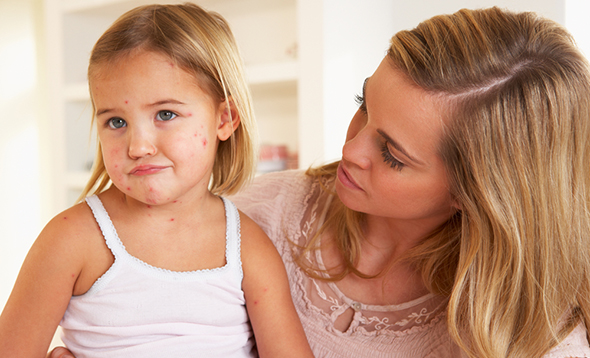That organic living is a conscious health choice
Food Allergies in Children
When the body has an allergic reaction, the immune system reacts to the food item as if it is dangerous even though it may be perfectly harmless. While the food item itself is of no threat, the body’s reaction to it can potentially be fatal. It produces antibodies in reaction to the food, causing chemicals—one of which is histamine—to be released into the blood stream. The histamine then causes symptoms that affect a child’s eyes, nose, throat, respiratory system, skin, and digestive system. Reactions can be mild or severe. They can occur immediately or a few hours after the food has been ingested.
Initial signs that your child is having an allergic reaction include developing a runny nose, an itchy rash, or a tingling sensation in the tongue or lips. Other signs include wheezing, coughing, a tightening of the throat, nausea, vomiting, diarrhea and stomach pains. In severe cases, a food allergy can cause anaphylaxis, where different parts of the body simultaneously react to the allergen, releasing histamine and other substances. Several of the symptoms listed above may occur at once. In addition, blood pressure can drop and the tongue can swell. In such situations, you should seek immediate medical attention for your child.
A food intolerance, on the other hand, is often caused by a person’s inability to digest certain substances (such as lactose). It doesn’t cause the immune system to react, but can lead to burping, indigestion, gas, diarrhea and other unpleasant but rarely dangerous side effects.
The foods that children are most commonly allergic to are milk (especially cow’s milk), eggs, soy, wheat, peanuts, tree nuts and seafood. Many children outgrow their allergies to milk and eggs, but severe allergies to nuts and certain kinds of fish or shellfish can often last a lifetime. The challenge, though, is identifying the cause of your child’s allergic reaction. Isolating the guilty food item can be difficult especially when each meal (or even snack) consists of multiple ingredients. Sometimes, the cause of the allergic reaction may not even be diet related. It may be triggered by something else your child is exposed to, possibly on a daily basis. Potential hazards can include household detergents as well as baby toiletries.
There is no cure for food allergies and the best treatment is to avoid consuming the allergen. Be conscientious about reading the ingredients lists on all packaged food products you purchase and seek out manufacturers that create products with allergy sufferers in mind. If your child has severe food allergies, always ensure that you have an emergency plan in place so that your child’s caregivers know exactly what to do, whom to call and which medicines to administer should he or she develop an allergic reaction. When in doubt, do consult a doctor.


























_1672804154.jpg)

_1611290459.jpg)